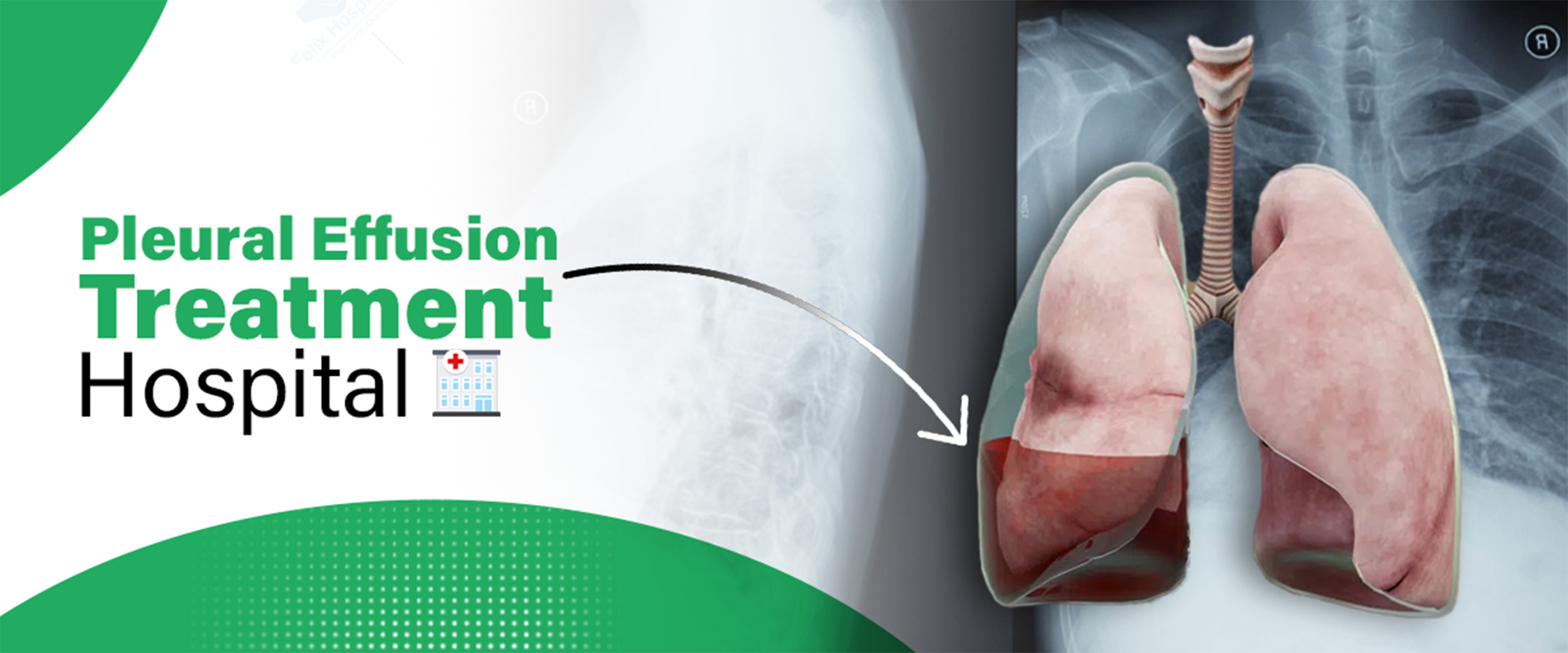
Subscribe to our

Pneumonia is a severe respiratory infection that affects millions of people worldwide each year. It can strike individuals of any age and may vary in severity from mild to life-threatening, especially among vulnerable populations such as the elderly, infants, and those with weakened immune systems. Understanding the symptoms, causes, diagnosis, treatment, and prevention of pneumonia is crucial for managing this potentially deadly illness. Seeking care at the best pneumonia treatment hospital is essential for a full and timely recovery. In this detailed guide, we’ll cover everything you need to know about pneumonia to help you or your loved ones stay informed and prepared.
If you or someone close to you is showing signs of Pneumonia, early medical intervention is vital. Don’t hesitate to contact Felix Hospital to receive expert care Click Here.
Pneumonia is an infection that inflames the air sacs (alveoli) in one or both lungs. These air sacs may fill with fluid or pus, leading to symptoms such as coughing, fever, chills, and difficulty breathing. Pneumonia can be caused by various microorganisms, including bacteria, viruses, and fungi. It ranges from mild to severe, with serious cases requiring hospitalization, especially in high-risk individuals.
There are different types of pneumonia depending on the source of the infection, including:
Pneumonia symptoms can vary depending on the cause and severity of the infection. Common symptoms include:
Symptoms in infants and young children may be less specific, such as rapid breathing, feeding difficulties, or lethargy.
Pneumonia can be caused by a variety of pathogens, including:
Diagnosing pneumonia typically involves a combination of medical history, physical examination, and diagnostic tests. Common methods include:
The treatment of pneumonia depends on its cause, severity, and the patient's overall health. Treatment options include:
There are several measures you can take to reduce your risk of contracting pneumonia:
The cost of treating pneumonia depends on several factors, including the severity of the illness, the type of treatment required, and the healthcare facility providing the care. Hospitalization, intensive care, and the use of specialized treatments can significantly increase the overall cost. It is recommended to consult with your healthcare provider for an accurate estimate based on your circumstances.
If you’re looking for expert care in managing respiratory conditions like pneumonia, Dr. Priyadarshi Jitendra Kumar, the top general pulmonologist at Felix Hospital in Noida, offers advanced care and personalized treatment plans. With years of experience and a patient-centric approach, Dr. Kumar is committed to providing the best possible care to help patients recover and improve their lung health.
Pneumonia is a potentially serious infection that requires prompt diagnosis and appropriate treatment. By understanding its symptoms, causes, and prevention methods, you can take steps to protect yourself and your loved ones. Whether you need preventive care, such as vaccinations, or treatment for pneumonia, seeking help from a qualified healthcare provider is essential.
If you or a loved one is showing symptoms of pneumonia, don’t wait—Contact Felix Hospital today at +91 9667064100 to schedule a consultation with our top pulmonologists.
1. What are the first signs of pneumonia?
The first signs of pneumonia may include a cough with phlegm, fever, chills, shortness of breath, and chest pain.
2. Can pneumonia go away on its own?
Mild cases of viral pneumonia may resolve without medical treatment, but bacterial pneumonia usually requires antibiotics. Always consult a doctor for an accurate diagnosis.
3. Is pneumonia contagious?
Pneumonia can be contagious if caused by infectious agents like bacteria or viruses. It spreads through droplets from coughing or sneezing.
4. How long does it take to recover from pneumonia?
Recovery time varies depending on the severity of the infection and the individual's health, but it generally takes a few weeks to fully recover.
5. Who is most at risk for pneumonia?
The elderly, infants, and people with weakened immune systems or chronic illnesses are at a higher risk of developing pneumonia.
6. Can pneumonia be prevented with a vaccine?
Yes, vaccines for pneumococcal pneumonia, influenza, and COVID-19 can help prevent pneumonia, especially in high-risk individuals.
7. When should I see a doctor for pneumonia?
If you have symptoms like persistent cough, fever, shortness of breath, or chest pain, it is important to see a doctor immediately.